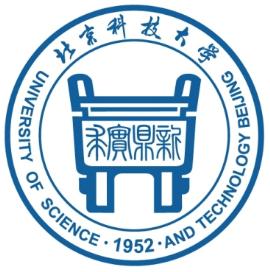Biogas for rural households and communities
LES5005 PROJECT BRIEF







Three partners join their capacities to bring change into villagers’ life:
- The Energy and Environment Partnership (EEP) promotes renewable energy (RE), energy efficiency (EE), and clean technology investments. Jointly funded by the Governments of Finland, Austria and by the UK's Department for International Development (DFID), EEP projects aim to provide sustainable energy services to the poor and combate climate change, demonstrate high innovation in delivering energy services, facilitating technology transfer, and encouraging cooperation and local stakeholders’ participation.
- Technology for Economic Development (TED) takes the institutional project lead with international, national and local contacts and skills, supported by the Department of Energy (Ministry of Energy, Meteorology and Water Affairs), and the Department of Environmental Health (Ministry of Health).
- The University of Science and Technology Beijing (USTB), China, through the Centre of Sustainable Environmental Sanitation (CSES) contributes with a broad knowledge on biogas technology, prefabricated biogas systems, training and energetic and environmental impact analysis. USTB-CSES is further cooperating with the Biogas committee of the China Association of Rural Energy Industry (CAREI), which develop standards for the Chinese rural energy market and certifies products being sold in the market.
The project addresses the needs of rural households and communities in Berea District to have secured access to energy, as they suffer from decreasing biomass resources used to fuel cook stoves: trees and shrubs are de-rooted, women burn animal dung instead of applying it for improved soil fertility; erosion of arable land endangers food security and destroys the basis of rural livelihood. In addition to prefabricated biogas plants, the connection of safe toilets to the systems will enhance the rehabilitation of the environment and protect water sources from fecal contamination.
For the first time, 100 prefabricated biogas plants of different technology providers - connected to hygienic dry toilets, will be installed in up to 5 locations in Lesotho. Biogas technology converts all kinds of organic waste into energy, and creates multiple benefits for households and communities such as improved energy and food security, rehabilitation and protection of the environment and economic development, thus impacting positively on the villagers' livelihood. In rural communities, biogas energy production is more efficient than in urban settings, as animal dung is available and dry toilets do not dilute the organic matter. It is calculated to provide up to 75% of a household's cooking energy.
Lesotho’s VISION 2020 emphasizes the role of communities to care for their environment. Lesotho's Energy Master Plan identifies as steps towards sustainable energy security to improve the choice of affordable energy options, and to provide information on energy resource options; to assist in reducing indoor air pollution from burning of biomass; and to promote the efficient use of energy.
Activities implemented together with local communities and authorities include community awareness raising on water, sanitation and hygiene of students, teachers, community leaders, forestry and health workers to achieve long-term sustainability of the environmental improvements. Training in efficient biogas and slurry use will enhance energy and food security; and training in construction and maintenance for local craftsmen and –women will facilitate local jobs.
Beyond this pilot phase, it is envisioned that prefabricated biogas system components will create interest in the private sector in Lesotho to start up own or licensed production lines with quality management systems advised by TED and USTB-CSES, and recognized by national regulations. Prefabricated biogas systems could be a ‘bankable asset’ as they are movable like any other usually micro-loan financed asset.
Project financed by the Ministry for Foreign Affairs of Finland and the Austrian Development Cooperation.

